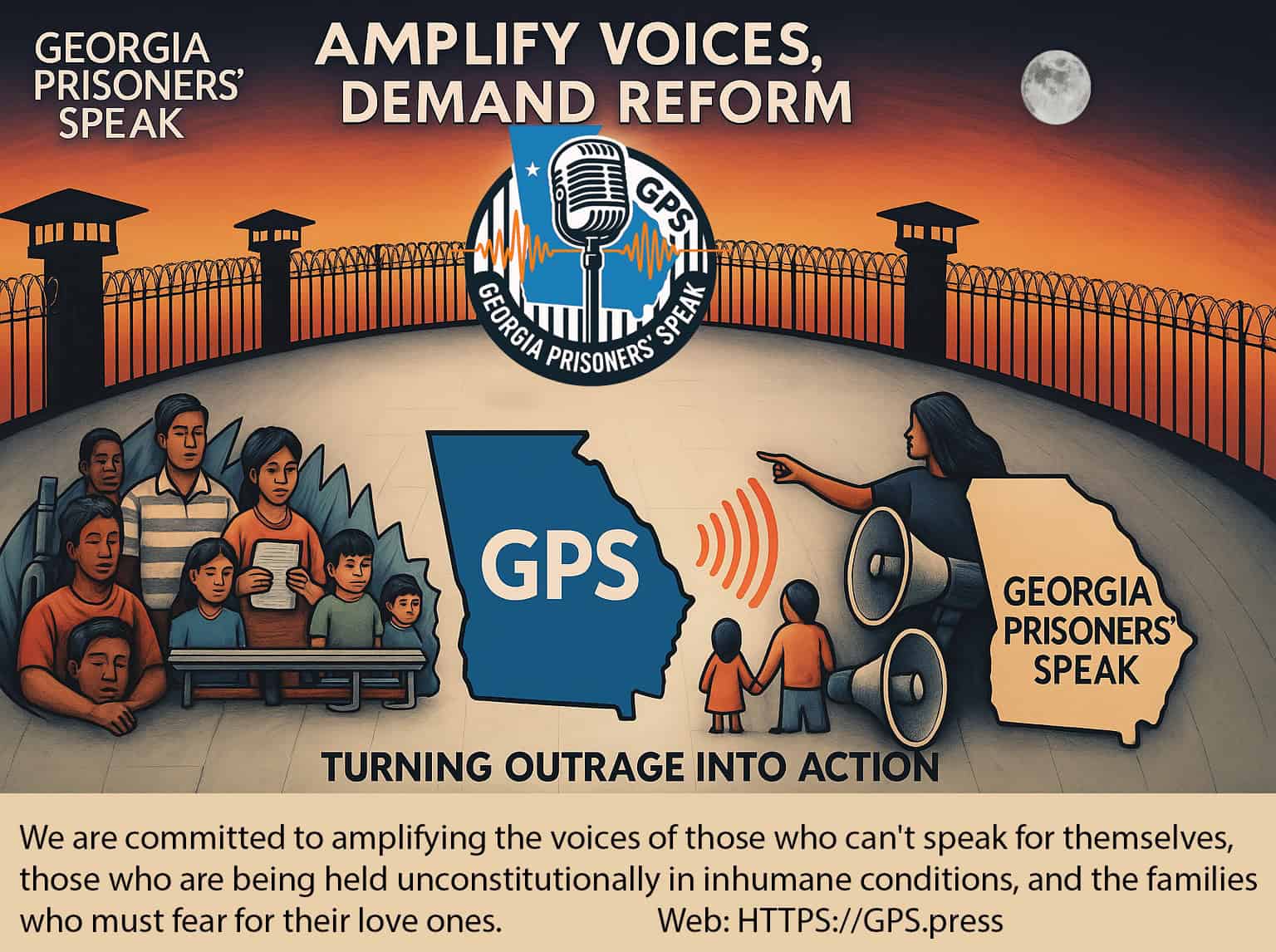Over 200,000 children in Georgia are separated from a parent due to incarceration. 65% of families with an incarcerated parent cannot afford basic needs. Georgia’s prison population hit 51,000—the highest in 15 years. Families face legal fees, travel costs, and communication expenses while losing a parent’s income. The DOJ investigated Georgia’s prisons for violence. Children experience trauma comparable to abuse or divorce. Georgia’s prison crisis isn’t just about inmates—it devastates entire families. 1
The Financial Devastation
Incarceration pushes families into poverty:
- Legal and court costs—deplete family savings
- Visitation expenses—transportation, lodging, missed work
- Communication costs—$400-500 monthly for calls
- Childcare burden—single remaining parent struggles alone
When a parent goes to prison, the family loses income while gaining expenses. 65% of affected families can’t meet basic needs.
Children Pay the Price
Nearly 189,000 Georgia children have experienced parental incarceration:
- Anxiety and depression—from separation and stigma
- Behavioral problems—acting out trauma they can’t express
- Educational disruption—instability affects school performance
- Generational impact—trauma affects development and future opportunities
Children of incarcerated parents experience trauma comparable to abuse or parental divorce. Georgia offers them almost no support.
Communication Barriers
Maintaining family bonds is deliberately difficult:
- Expensive calls—families can’t afford regular contact
- Limited visits—restricted hours, distant facilities
- Unreliable video—technology failures prevent connection
- Mail restrictions—communication limited and delayed
Since COVID-19, prison violence increased while family visits decreased. The pandemic made bad conditions worse.
Racial Disparities
Black communities bear disproportionate burden:
- Higher incarceration rates—more Black families affected
- Less access to services—support systems harder to reach
- Greater financial strain—existing wealth gaps widen
- Generational impact—cycles of poverty and incarceration
Atlanta’s Black communities face these challenges most acutely.
Take Action
Use Impact Justice AI to send advocacy emails demanding family support in Georgia’s prison system. The free tool crafts personalized messages to Georgia lawmakers—no experience required.
Demand:
- Child support suspension during incarceration
- Affordable communication for families
- Expanded reentry support programs
- Resources for children of incarcerated parents
Further Reading
- The Cost of Communication: Families Paying the Price
- Inside the War Zone: The Reality of Georgia Prisons
- GPS Informational Resources
- Pathways to Success
About Georgia Prisoners’ Speak (GPS)
Georgia Prisoners’ Speak (GPS) is a nonprofit investigative newsroom built in partnership with incarcerated reporters, families, advocates, and data analysts. Operating independently from the Georgia Department of Corrections, GPS documents the truth the state refuses to acknowledge: extreme violence, fatal medical neglect, gang-controlled dorms, collapsed staffing, fraudulent reporting practices, and unconstitutional conditions across Georgia’s prisons.
Through confidential reporting channels, secure communication, evidence verification, public-records requests, legislative research, and professional investigative standards, GPS provides the transparency the system lacks. Our mission is to expose abuses, protect incarcerated people, support families, and push Georgia toward meaningful reform based on human rights, evidence, and public accountability.
Every article is part of a larger fight — to end the silence, reveal the truth, and demand justice.

- GPS Statistics, https://gps.press/gdc-statistics/[↩]
